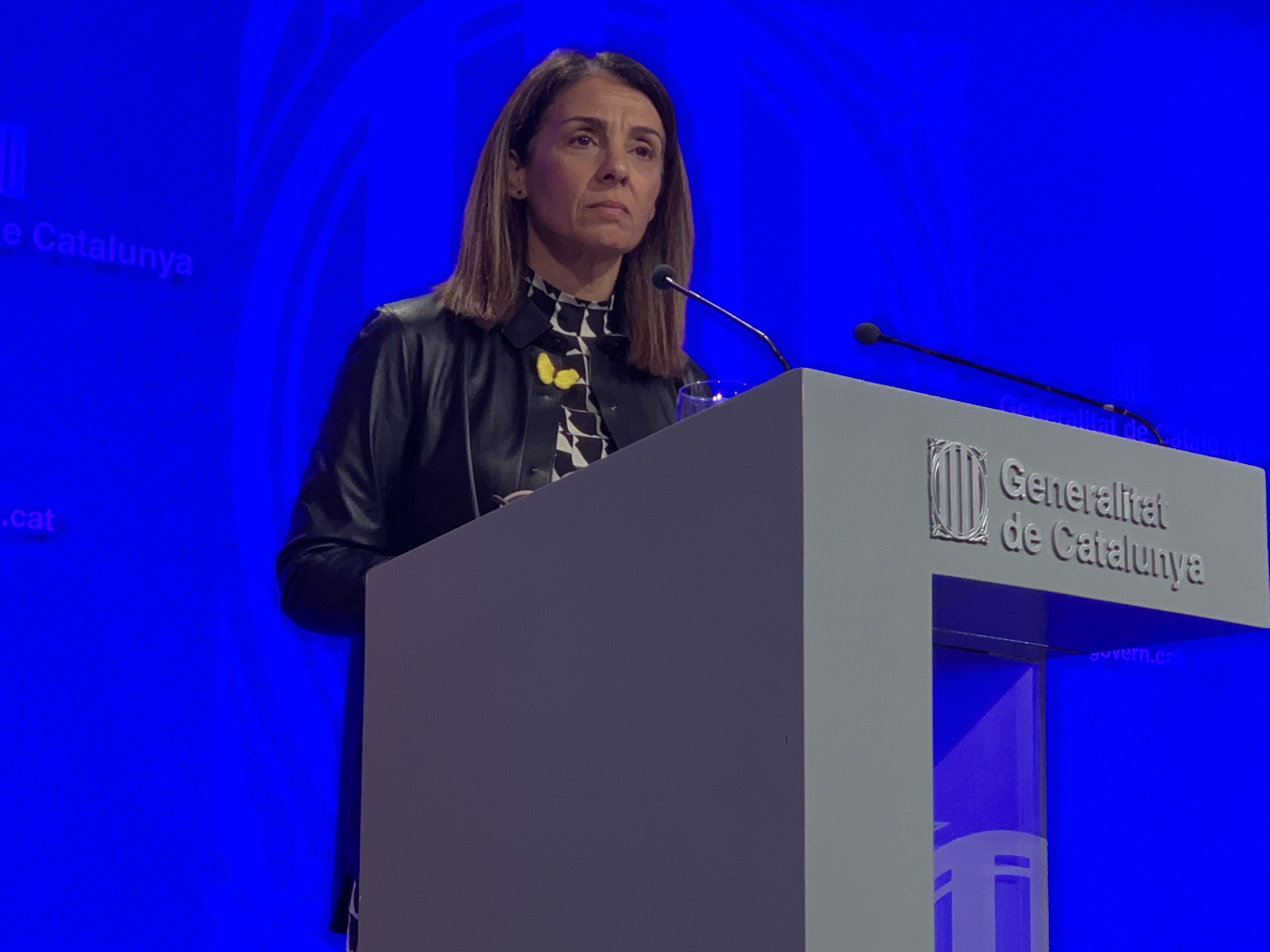The Catalan Government has admitted that last week's European Court of Justice ruling that Oriol Junqueras had parliamentary immunity when sentenced by the Supreme Court may affect the final decision on the prison regime of the nine convicted pro-independence leaders. "There obviously could be some change," said Meritxell Budó, Catalan presidency minister, in a press conference this Monday.
Prison commissions requested a standard "second degree" prison regime for all of the Catalan political prisoners on December 11th, but their final classification is to be decided by an Imprisonment Secretariat within the Catalan justice ministry, which has two months to make its decision. The regime requested by the prisons was the result of a long discussion which ended in a split decision.
Former minister Jordi Turull, one of those jailed in Lledoners prison, asserted in an interview with Catalunya Ràdio on Sunday that, following the ECJ ruling, it would be incomprehensible if the pro-independence prisoners were not now awarded the "third degree" - an open prison regime, which would allow prisoners to leave jail during the day.
Budó said that the decision was up to the experts, but acknowledged that it was "obvious" that between the prison commissions' decisions and the final decision by the secretariat, the new court ruling had taken place.
On the subject of the ruling, the Catalan government called on the Supreme Court to "obey" the decision of European justice on the immunity of Oriol Junqueras and release him without further delay, so that he could spend Christmas with his family.
"This ruling invalidates the trial, which should be declared null and void, and all prisoners released."
Budó also referred to the fact that, due to the ECJ ruling, Carles Puigdemont and Toni Comín have been accredited to the European Parliament, despite the obstacles imposed by Spanish justice. "We denounce the increasingly clear and noticeable distancing between Spanish justice and European justice," she said.
▶️ #Portaveu @meritxellbudo: “Sembla que novament la justícia espanyola es desmarca i s’allunya de l’europea. El president @KRLS i @toni_comin tenien dret a presentar-se a les europees i a ser eurodiputats. I el #vicepresident @junqueras des de dijous hauria d'estar en llibertat" pic.twitter.com/EofEGmuTc3
— Govern. Generalitat (@govern) December 23, 2019

